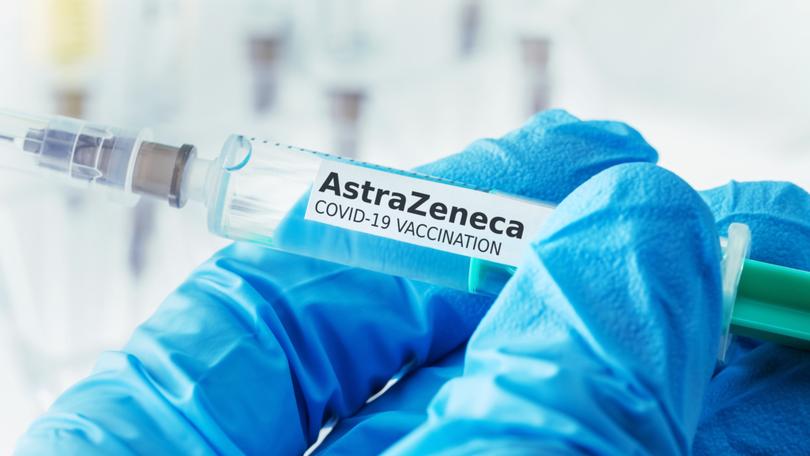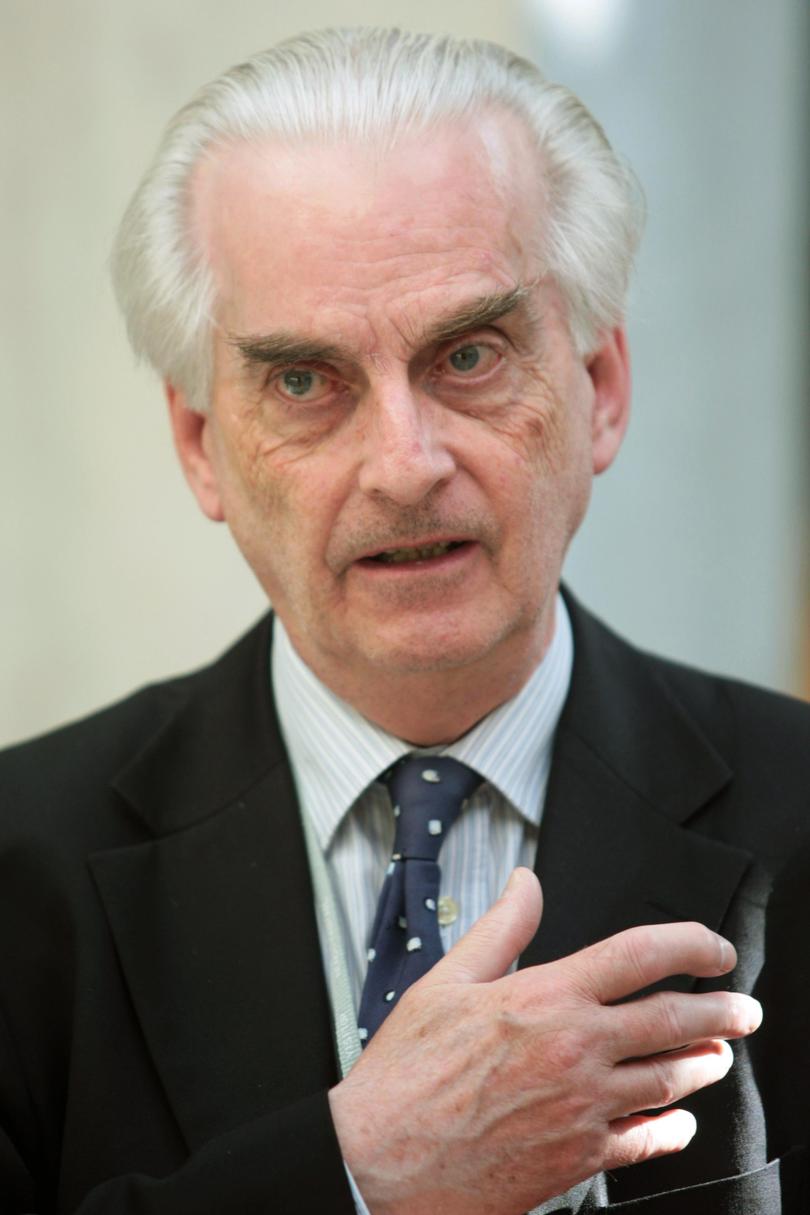HUGH PENNINGTON: Sorry conspiracy theorists but the benefits of AstraZeneca jab far outweighed risks

Let’s get this in perspective.
The AstraZeneca (AZ) COVID vaccine is being withdrawn worldwide after the pharmaceutical company admitted in a British court that it can, in rare cases, cause fatal blood clots.
More than 50 families are currently taking legal steps for compensation, claiming the jab was “defective” and caused long-term injury or death to their loved ones.
Sign up to The Nightly's newsletters.
Get the first look at the digital newspaper, curated daily stories and breaking headlines delivered to your inbox.
By continuing you agree to our Terms and Privacy Policy.Sadly, given that the COVID vaccine campaign was by far the biggest in world history — and that it had to be done at unprecedented speed — such isolated tragedies were, I’m afraid, inevitable.
The question is whether, on a population-wide basis, the benefit of the vaccines outweighed the risks — and on that score, the evidence is overwhelming.
Yes, the Government’s medical advisers were overly optimistic when they speculated during the pandemic that, if the whole population could be vaccinated, our collective immunity could be raised to the point that the virus itself was eradicated.
This has never happened, as ongoing COVID waves still prove.
But we must never lose sight of the full picture.
More than three billion AZ doses were given worldwide, and millions of lives were saved. And in all probability, I am one of them.
In November last year, aged 85, I caught the virus for the first time and spent five days in hospital, weak, exhausted and constantly breathless.
For two days, I was on oxygen.
The part of my brain that has been obsessed with medicine all my life found this experience rather interesting. I’m not sure that my family viewed it in quite the same light.
I owe my survival, I believe, to the fact that I had the AZ vaccine early in 2021, followed by three boosters.
In my case, some of the batches came from Pfizer as well as AZ, but all the data shows they were approximately equal when it came to reducing the severity of the disease.
Multiply my own case by many millions and it’s obvious that mass vaccination not only enabled legions of patients aged 60 and over to withstand the worst of the disease — it also kept our hospitals from being overwhelmed and collapsing into chaos.
Conspiracy theorists have seized on AZ’s recent court admission, claiming it proves the drug companies pushed dangerous and ineffective vaccines on the world.
But in the event, only a few people — comparatively speaking — were so unlucky as to suffer from blood clots or other serious complications.
Why these clots occurred in a very small number of people, we do not yet know, but no one could have predicted them.
And so I’m sorry to disappoint the conspiracy theorists, but there was nothing opportunistic about these jabs or the way they were produced.
It is worth recapping here how the AZ vaccine worked.
The Oxford University scientists behind it produced a genetically engineered form of COVID-19, which could not cause illness — but which did help patients to produce their own protective immune response.
One theory is that the damage suffered by some people was caused by a specific component of the vaccine: an adenovirus, which was used as a sort of “carrier” to kickstart an immune reaction in the patient. The danger was missed in trials, however, because this adverse reaction was so exceptionally rare.
For the people affected, it is a tragedy — but it is no reason to dismiss the vaccines out of hand.
Why, today, do so many people remain doubtful about the COVID jabs — and unwilling to see them as the modern miracle they really are?
In part, this is down to the mood of terror as the pandemic first took hold.
As pictures hit the news of Italian intensive care units in crisis at the beginning of March 2020, panic spread even faster than COVID itself.
Conflicting opinions on the best course of action became dizzying and deafening: some urged draconian lockdowns, others pleaded for the use of face masks and hand-washing, still others insisted the risks were being exaggerated.
The country became a hotbed for competing conspiracy theories, fuelled by social media — some of which were malicious and generated by troll farms in hostile nations. (Such lurid claims continue even now, of course, with anti-vaxxers blaming every medical condition, from the collapse of footballers on the pitch to the Princess of Wales’ cancer diagnosis, on the vaccine.)
Without the jabs, Britain’s older population would have been decimated.
Cast your mind back to those dark and confused days, and remember how loud were the calls from politicians and NHS staff for any means of preventing the spread of COVID, since a cure seemed out of reach — as it still does.
Yet here’s the thing.
Even though the AZ vaccine was hailed as an innovation when it was first approved for use in the UK at the end of December 2020, it was actually the culmination of many years’ work.
Much of the technology was, in fact, waiting to be used when COVID-19 first emerged in 2020.
The AZ team even had a “candidate” vaccine ready by February that year — before the British government had given serious consideration to the need for any lockdown.

So those who claim the drug companies hurried out experimental, untested, recklessly dangerous vaccines are seriously wide of the mark.
Finally, on December 8, 2020, what then-prime minister Boris Johnson memorably described as the “scientific cavalry coming over the brow of the hill” arrived.
Yet there were widespread misunderstandings about how the new jabs would work.
Most lay people seemed to expect the COVID vaccine to form an impenetrable “barrier” against disease.
That’s how we tend to view jabs against everything from TB to measles, polio to smallpox.
The reality, in the case of the COVID vaccines, is different.
They are more of a superpower, making our bodies stronger and better able to fight off an enemy . . . like Popeye when he eats spinach. And like Popeye, we don’t stay superhuman forever.
The power wears off and needs to be renewed from time to time.
Yet even if they weren’t a magic shield, the vaccines proved to be essential.
Though they had limited success in stopping the virus from multiplying in the mouth, nose and throat, they were highly effective at minimising the risk of serious COVID infection in the rest of the body, such as the lungs and vital organs.
This saved countless lives.
What they also did less well, as we eventually found out, was stopping the spread of the disease through the air from our mouths and noses.
Of course, none of this was clear amid the panic of the pandemic — and even today, we find ourselves searching for answers.
The debate continues about how much good and how much harm was done by lockdown, for example.
So yes, many questions remain.
It is now clear that, for a tiny minority of people, the decision to be jabbed proved disastrous.
But we should remember that bigger picture, too.
Without the jabs, Britain’s older population would have been decimated.
Even with the introduction of the vaccines, Britain lost up to 230,000 people to the virus.
Without the jabs, many thousands more would have died. And I am probably one of them.
* Hugh Pennington is an emeritus professor of bacteriology at the University of Aberdeen
